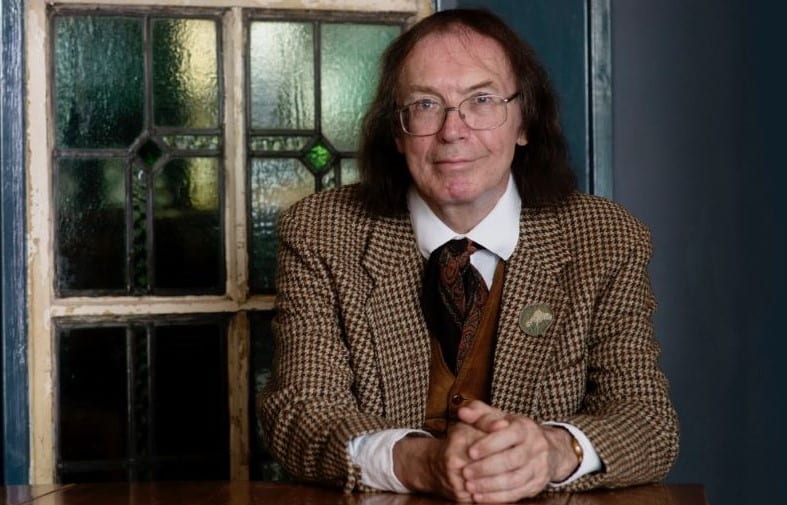
Ronald Hutton, Professor of History in Bristol’s Department of History, is a renowned and beloved academic and author of multiple books and publications. He is a leading authority on the history of the British Isles in the sixteenth and seventeenth centuries, on ancient and medieval paganism and magic, and on the global context of witchcraft beliefs.
Professor Hutton shares with us his views on Bristol, why it’s so important to him, and why he’s left a gift in his Will to the University.
Bristol has been my academic home for well over forty years now and was the obvious choice of beneficiary in my Will for my archive of academic papers. The Special Collections of our Library has started to specialise in what might be called alternative forms of spirituality and so my archive seemed to be a perfect fit.
I’m a believer in leaving gifts in Wills because I’ve seen firsthand the enormous impact those gifts can have. Legacy gifts at Bristol regularly fund student scholarships and I saw the difference they made during my time as Head of Department. Those funds rescued some academic careers. At a time when the cost of study is ever-escalating, scholarships can make a world of difference in academia. My hope is that my own bequest of my academic papers can contribute to the study of history in a meaningful way for many, many years to come. Leaving publications to which people still refer years down the line, including after your own death, makes you a part of history. Which for a historian I suppose is the ultimate achievement!
I’m often asked why anyone should bother to study history. To my mind it’s incredibly important for a number of different reasons. The first is simply that it gets students jobs. It teaches them the basic skill of taking a mass of evidence, analysing it from a personal point of view, and then presenting a persuasive argument of one’s own, rooted in that evidence. And that’s the skill of practically any career these days.
“If command was the much sought after leadership quality in the first half of the 20th century, persuasion has become the equivalent quality since then, and history teaches that very well.”
There is very little unemployment among our history graduates and they go into an extraordinary range of occupations, so that is heartwarming to know. History is also fun! It’s rarely boring, especially if it’s taught adequately. It’s like a good book or a good film, it’s a story.
The other reason why it’s so important that we study history is to help us understand why we’re here. History is the origin story for everything, and you understand our present world better if you know how it came to be. For example, historically you cannot understand the Russia-Ukraine war unless you realise that Kyiv was the original capital of Russia [as the capital city of the medieval East Slavic state, Kyivan Rus] and Russians regard the Ukraine as their ancestral home. This doesn’t in any way excuse Russia’s behaviour, but it helps explain some of the emotions underlying the conflict. History can help us rationalise and deal with a really serious situation in the present world.
I’ve been at the University of Bristol for so long now that I suppose you could say I’m part of its history! The reason I’ve remained here for so long is twofold – I’ve been treated so extremely well and my staff and students have been extraordinarily genial. While highly intelligent, the Bristol students I teach are modest and as a result they are an absolute delight to teach. They treat each other better, and they treat me and the rest of my staff better.
And as for the city itself, it’s got everything that a city should have – all the amenities and an absolutely splendid social and cultural life – but you can see across the entire place from one hill to another. It’s not a vast concrete jungle and yet it’s a perfect regional capital. People have always been incredibly accepting of me here. I may carry various labels on my travels but in Bristol, I’m just accepted as me and I’m very grateful for that.
Professor Hutton is a regular contributor to mainstream media and made a guest appearance on the BBC podcast Witch, Episode 13, the aptly title ‘Legacy’! You can listen to it on the BBC website.
If, like Professor Hutton, you would like to support Bristol by leaving a gift in your Will, you can contact the Planned Giving Team. Legacy gifts over the years have enabled a variety of wonderful things including scholarships, PhDs, and research. You can ensure that Bristol’s excellence lives on by making a gift in your Will today.
Details on how to leave a gift in your Will are available online.
